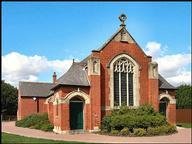Quiz Answer Key and Fun Facts
1. Who was the editor and compiler of the first two editions of The Book of Common Prayer?
2. The Book of Common Prayer contains specific liturgies for the order of service on various occasions. Which is NOT one of those occasions?
3. The Book of Common Prayer contains a collection of poems whose original authorship is traditionally attributed to King David. What is this section called?
4. The Book of Common Prayer contains the historical statements of the doctrines and practices of the Church of England. What are these called?
5. Many now well-known English phrases came down to us from the Book of Common Prayer, including this one still used in some weddings today: "Speak now or forever hold your ___." What word belongs in the blank?
6. "Earth to earth, ashes to ashes," what to what?
7. "Read, mark, learn, and inwardly _____." What word is missing from this blank, according to most versions of the Book of Common Prayer?
8. The 1928 Book of Common Prayer contains several family prayers. Which of the following is NOT one of them?
9. "Almighty God, unto whom all hearts are open, all desires known, and from whom ___, cleanse the thoughts of our hearts by the inspiration of thy Holy Spirit..." What phrase is missing from this collect found in the Book of Common Prayer?
10. The Book of Common Prayer contains "Proper Prefaces" for Holy Communion for certain special days. On which day would the following preface be said: "Through Jesus Christ our Lord; who, in substance of our mortal flesh, manifested forth his glory; that he might bring us out of darkness into his own glorious light"?
11. Which of these phrases did NOT originate in the Book of Common Prayer?
12. The historic King's Chapel in Boston, Massachusetts developed a revised version of the Book of Common prayer that eliminates trinitarian references. With which denomination is King's Chapel associated?
13. Which of the following novels by English crime novelist P.D. James draws its title from a phrase in the Book of Common Prayer?
14. What Anglican priest, usually credited with the founding of Methodism, wrote, "I believe there is no Liturgy in the world . . . which breathes more of a solid, scriptural, rational piety than the Common Prayer of the Church of England"?
15. "Almighty and everlasting God, who hatest nothing that thou hast made, and dost forgive the sins of all those who are penitent; Create and make in us new and contrite hearts." On what holy day would you most likely find these lines recited from the Book of Common Prayer?
Source: Author
skylarb
This quiz was reviewed by FunTrivia editor
looney_tunes before going online.
Any errors found in FunTrivia content are routinely corrected through our feedback system.
